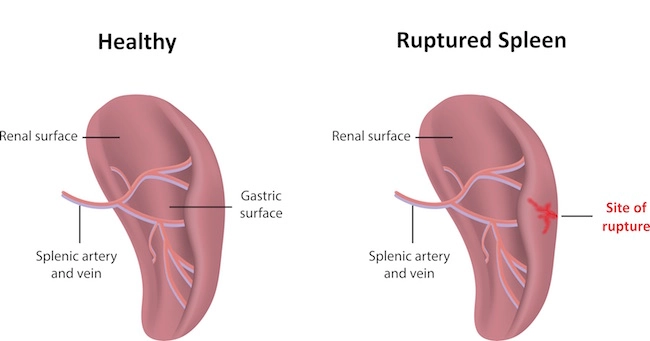Splenectomy
The team at Alabama Surgical Associates specializes in laparoscopic splenectomy.
Splenectomy
The team at Alabama Surgical Associates specializes in laparoscopic splenectomy.
Surgical Removal of the Spleen
The spleen is an important part of your body’s defense system. It filters the blood and contains special white blood cells that destroy bacteria and help fight infections. But sometimes, either through an injury or if you have certain diseases that affect the blood, a person needs to have his or her spleen removed. This is called a splenectomy and the experts at Alabama Surgical Associates can usually perform the surgery laparoscopically, minimizing scarring and making for an easier recovery.
What Does the Spleen Do?
The spleen is the largest organ in the lymphatic system. It is located under the ribcage and above the stomach. Adult spleens are usually about five inches wide. The spleen acts as a blood filter, controlling the amount of red blood cells and blood storage in the body. But its most important role is in fighting infection. If the spleen detects potentially dangerous bacteria, viruses, or other microorganisms in the blood it (along with the lymph nodes) creates special white blood cells called lymphocytes that work to kill the invading organisms.
People can live without their spleen but need to be aware that they are at a greater risk for severe infections without the spleen’s immune response.
Who Needs to Get Their Spleen Removed?
There are two scenarios when a person will need to have all or part of his or her spleen removed: trauma/rupture of the spleen or cancer or blood disorder.

The most common reason for a splenectomy is because the spleen has ruptured. This is usually the result of trauma from car accidents or severe blows during contact sports such as football. When the spleen ruptures it can lead to life-threatening internal bleeding, so immediate surgery is usually required.
A splenectomy may also be recommend if the patient has an enlarged spleen (splenomegaly), cancers such as lymphoma, some blood disorders, infection, and noncancerous cysts or tumors.
The most common disease-related cause for spleen removal is a blood disorder called idiopathic thrombocytopenic purpura, an autoimmune condition in which antibodies mistakenly target blood platelets. Removing the spleen can correct the condition.
What Will Happen Before a Splenectomy?
If the team at Alabama Surgical Associates finds that you have a ruptured spleen and signs of massive internal bleeding, you will need surgery immediately. In other cases not involving trauma to the spleen, we will conduct a complete physical exam, blood work, and tests to check your abdominal and chest area before surgery. These may include x-rays, EKGs, MRIs, and CT scans. Prior to surgery, you will also receive drugs or a vaccine to prevent bacterial infections from developing after the spleen is removed.
How is a Splenectomy Performed?
The team at Alabama Surgical Associates specializes in laparoscopic splenectomy. In the surgery, we use a slender tool called a laparoscope that has a light and a camera on the end. The surgeon makes three or four small incisions in the abdomen, and inserts the laparoscope through one of them. This gives the surgeon a view of the abdomen and the spleen. Other medical tools are passed through the other openings. One is used to deliver carbon dioxide gas into the abdominal area, pushing nearby organs out of the way. The spleen is then cut away from the surrounding structures, disconnected from the blood supply, and removed through one of the incisions.
What is Splenectomy Recovery Like?
With most laparoscopic splenectomies patients return home from the hospital in less than a week. There will be some small scars on the upper abdomen, but they will fade. Full recovery and the allowance for strenuous exercise will take from four to six weeks.
More important than your recovery is the attention that needs to be paid to potential infections. This is because the spleen plays a crucial role in the body’s ability to fight off bacteria, especially the bacteria that cause pneumonia, meningitis, and other serious infections. The risk of infection is about 12 times the normal incidence in a person without a spleen.
Due to these risks, patients need to have the fact that they have no spleen stated prominently on all of their medical records, and they will need to carry a national splenectomy card in case of emergency. Patients will also receive additional vaccinations for Pneumovax 2 and Meningococcal A&C, along with the Hib vaccine. Special precautions need to be taken against malaria, and many patients will take Penicillin V twice a day for life.
Schedule an Appointment
You can trust your splenectomy to the skilled, board-certified surgeon at Alabama Surgical Associates (ASA) in Huntsville, AL. For more information about your splenectomy, please click below to contact our office.
Dr. Darrell Doucette has either authored or reviewed and approved this content.
Page Updated: